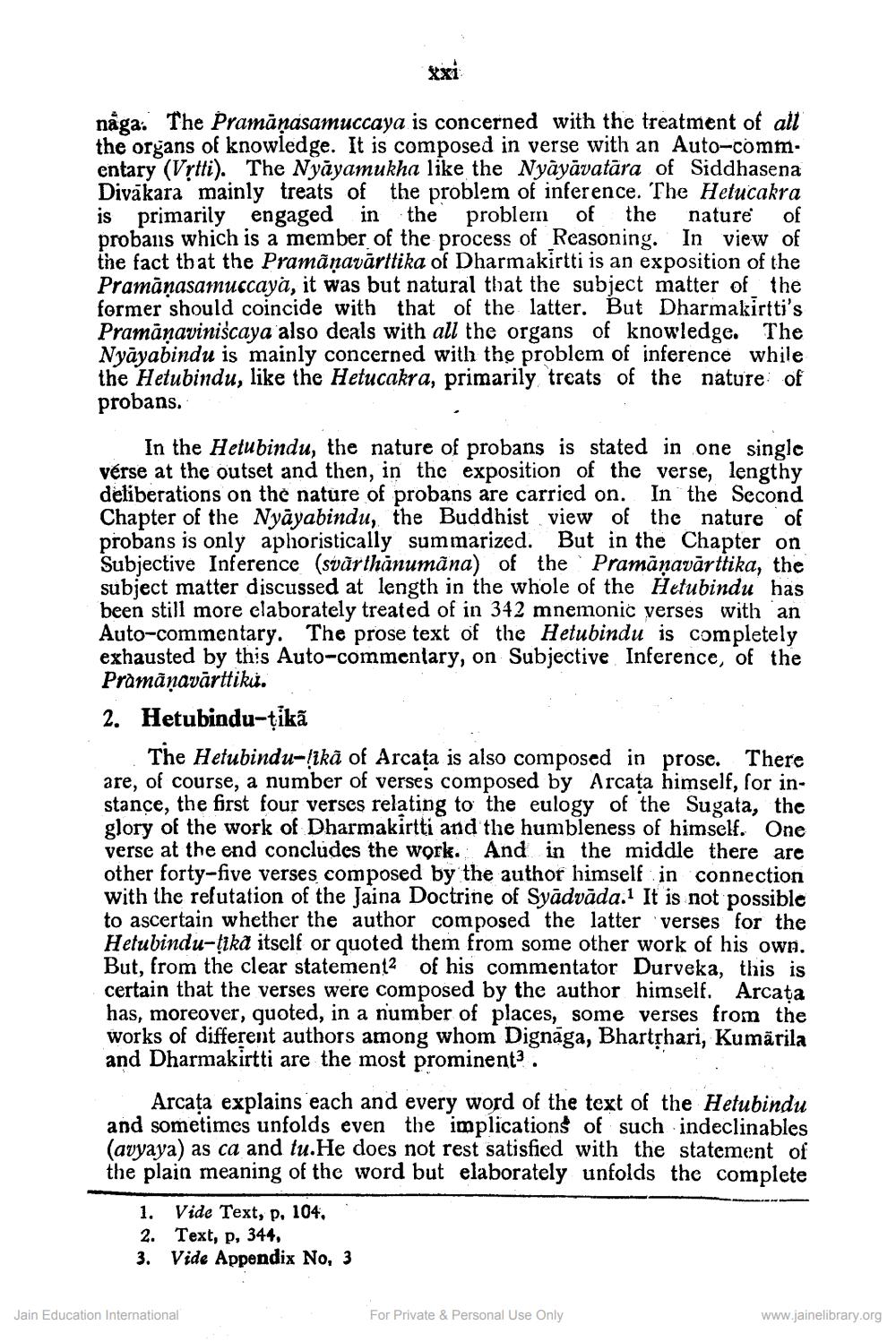________________
xxi
naga. The Pramanasamuccaya is concerned with the treatment of all the organs of knowledge. It is composed in verse with an Auto-commentary (Vrtti). The Nyayamukha like the Nyayavatara of Siddhasena Divakara mainly treats of the problem of inference. The Hetucakra is primarily engaged in the problem of the nature of probans which is a member of the process of Reasoning. In view of the fact that the Pramanavarttika of Dharmakirtti is an exposition of the Pramanasamuccaya, it was but natural that the subject matter of the former should coincide with that of the latter. But Dharmakirtti's Pramanaviniscaya also deals with all the organs of knowledge. The Nyayabindu is mainly concerned with the problem of inference while the Hetubindu, like the Hetucakra, primarily treats of the nature of probans.
In the Hetubindu, the nature of probans is stated in one single verse at the outset and then, in the exposition of the verse, lengthy deliberations on the nature of probans are carried on. In the Second Chapter of the Nyayabindu, the Buddhist view of the nature of probans is only aphoristically summarized. But in the Chapter on Subjective Inference (svarthanumana) of the Pramanavarttika, the subject matter discussed at length in the whole of the Hetubindu has been still more elaborately treated of in 342 mnemonic verses with an Auto-commentary. The prose text of the Hetubindu is completely exhausted by this Auto-commentary, on Subjective Inference, of the Pramāṇavārttiků.
2. Hetubindu-tikā
The Hetubindu-lika of Arcata is also composed in prose. There are, of course, a number of verses composed by Arcata himself, for instance, the first four verses relating to the eulogy of the Sugata, the glory of the work of Dharmakirtti and the humbleness of himself. One verse at the end concludes the work. And in the middle there are other forty-five verses composed by the author himself in connection with the refutation of the Jaina Doctrine of Syādvāda.1 It is not possible to ascertain whether the author composed the latter verses for the Hetubindu-tika itself or quoted them from some other work of his own. But, from the clear statement2 of his commentator Durveka, this is certain that the verses were composed by the author himself. Arcata has, moreover, quoted, in a number of places, some verses from the works of different authors among whom Dignaga, Bhartṛhari, Kumärila and Dharmakirtti are the most prominent3.
Arcata explains each and every word of the text of the Hetubindu and sometimes unfolds even the implications of such indeclinables (avyaya) as ca and tu.He does not rest satisfied with the statement of the plain meaning of the word but elaborately unfolds the complete
1. Vide Text, p. 104,
2. Text, p, 344,
3. Vide Appendix No, 3
Jain Education International
For Private & Personal Use Only
www.jainelibrary.org




